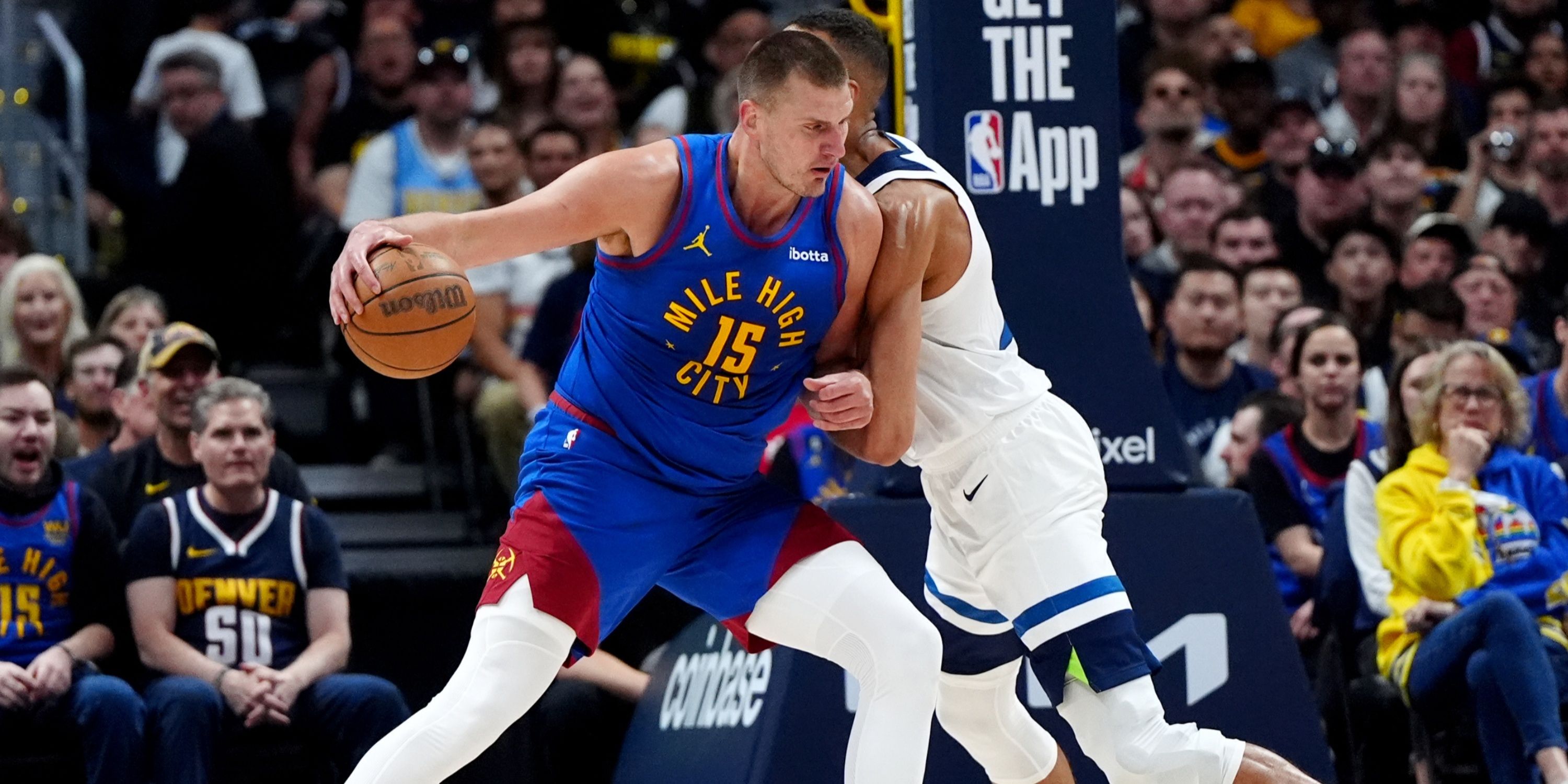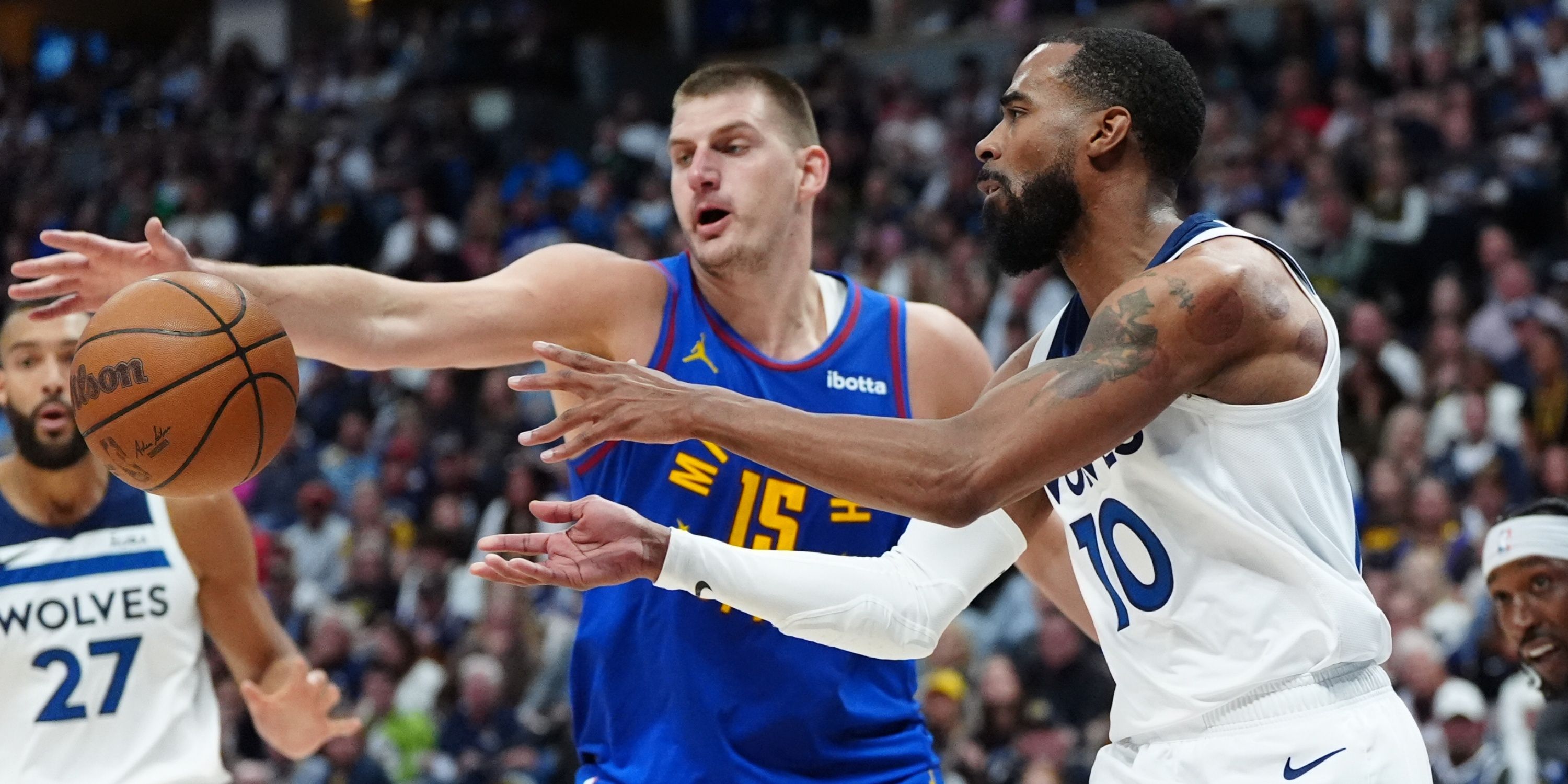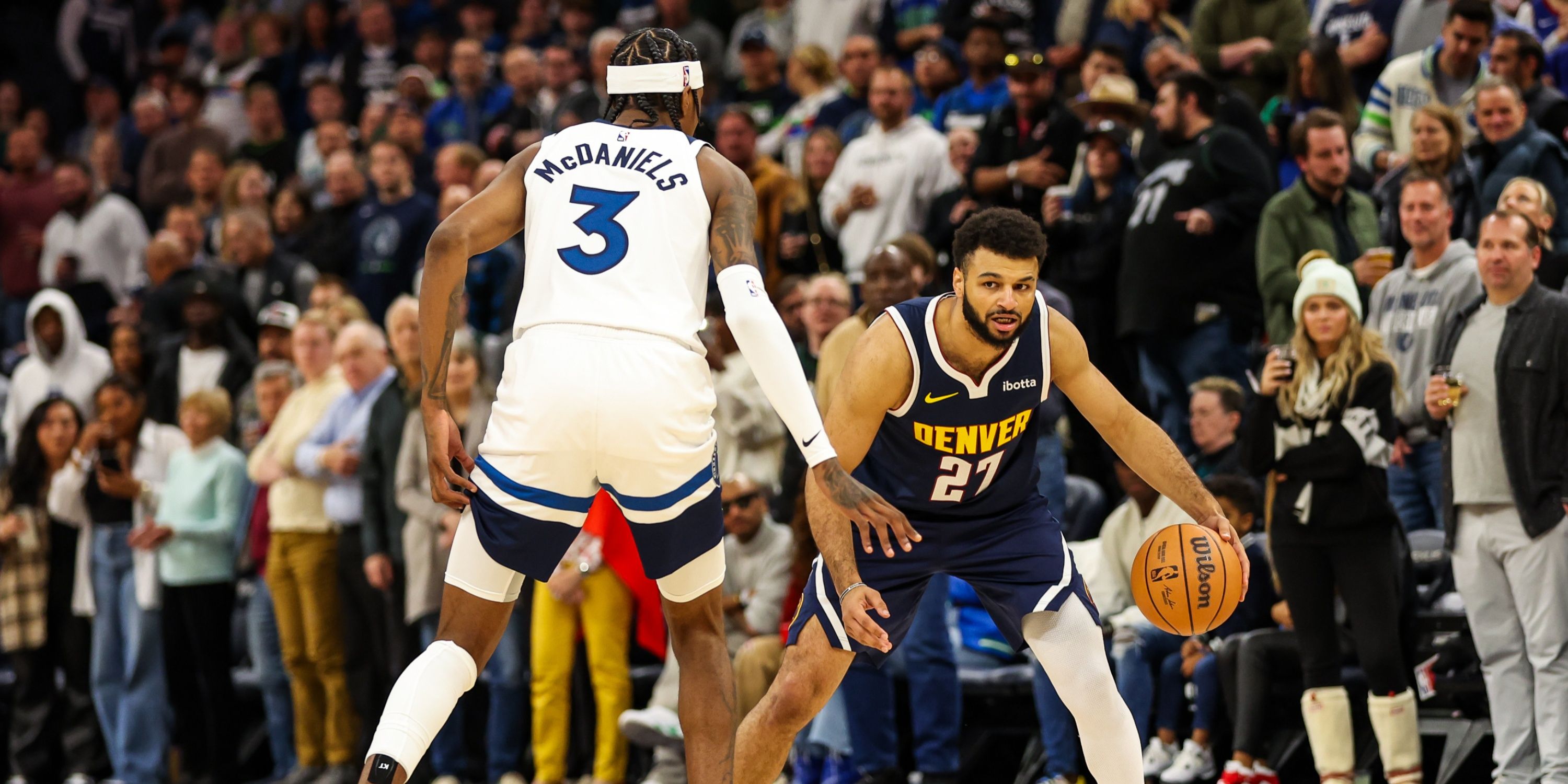Being the reigning NBA Finals MVP, Nikola Jokic is under immense pressure from fans and observers. With two NBA MVP awards under his belt, he’s accustomed to performing under the spotlight, usually shining brightly. However, in tonight’s game, the scenario was different. 
Despite his usual prowess, the Minnesota Timberwolves managed to secure a 106-99 victory in Game 1 of the Western Conference Semifinals on Denver’s home turf. This marked Minnesota’s first second-round win in two decades and ended Denver Nuggets’ unbeaten streak at home since March 29th. Interestingly, the opponent on March 29th was also the Timberwolves.
What is it about the Timberwolves that consistently challenges the Nuggets, especially Jokic, on their home court? It appears to be their unique defensive setup, featuring two 7-foot-tall players and a host of agile defenders who can effectively mark Jokic all over the court. Let’s delve into how they managed to neutralize him in Game 1.
In Game 1, Nikola Jokić emerged as the leading scorer for the Denver Nuggets, tallying 32 points. However, his shooting performance was somewhat underwhelming, as he went 11 for 25 from the field and 2 for 9 from beyond the arc. Moreover, he secured only eight rebounds, a notable drop from his regular season average of 12.4. Typically, the Nuggets heavily rely on Jokić to orchestrate their offense, leveraging his exceptional shooting range and playmaking abilities for a player of his size.
However, in Game 1, Jokić struggled to find open looks and couldn’t fully exploit his court vision. This was largely due to the defensive efforts of Rudy Gobert, Karl-Anthony Towns, and Naz Reid, who took turns guarding him throughout the game.
All three possess the physical stature to match up with Jokić, with Towns capable of defending him even on the perimeter, while Reid and Gobert can handle him in the paint. Notably, Gobert boasts three NBA Defensive Player of the Year awards, while Reid recently earned recognition as the NBA Sixth Man of the Year. This defensive versatility provides the Timberwolves’ coaching staff with various strategies to counter Jokić’s offensive prowess.
Assistant coach Micah Nori, who assumed a leading role on the bench in the absence of head coach Chris Finch, who is recovering from knee surgery, emphasized the Timberwolves’ adaptability in defending against Jokić.
Denver needs to ignite Jamal Murray’s performance. As the team’s second-best player and primary creator off the dribble, Murray holds a crucial role. Whether it’s through effective screening to create space for his perimeter shots or by isolating him to take on defenders one-on-one, Murray must generate scoring opportunities. His output in Game 1 was limited to just 17 points.
Coach Michael Malone could also devise strategies to divert defensive attention away from Jokić when he’s in possession, perhaps by incorporating more backdoor cuts. This approach could enable Jokić to find open teammates for assists, thereby forcing Minnesota to defend more honestly and potentially leading to more favorable matchups for Jokić.
In the event Jokić successfully creates openings for his teammates, they need to capitalize on scoring chances. Murray missed eight shots, Michael Porter Jr. missed seven, and Kentavious Caldwell-Pope only contributed six points. Consistency on the offensive end is imperative for the Nuggets.
Despite the disappointing outcome, Porter Jr. didn’t seem overly concerned following the game.